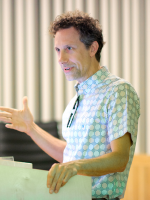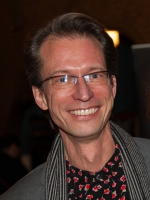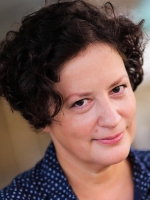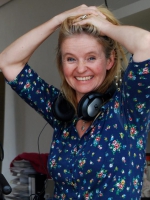DocLab production workshop

Documentary films have power. They can inspire and be a call to action. They can be potent tools in the fight for dignity, and against censorship and oppression. In these challenging times, when human rights are under threat around the globe in unprecedented ways, documentaries that can tell these stories on film are of vital importance.
The Verzio DocLab workshop invited filmmakers to share stories from their community, their experience, their perspective, by creating a film that deepens understanding of the human rights challenges people face. The workshop is a platform for both beginning and advanced filmmakers interested in documentary and human rights to make a short film, a documentary essay or to edit a scene or episode from a feature-length documentary already in the making. An international team of filmmakers, editors, and human rights experts offers guidance and mentorship in structuring, editing, and post-producing of the films. The main focus of the films shall be on human rights issues in the broadest sense. The stories should be well researched, based on lived experience, foreground individual personalities, and aim for impact. The workshop participants are expected to arrive with footage shot prior to the workshop and will get tutoring in editing and cinematic structure. The goal of the workshop is to put human rights issues “in focus” by contributing to the creation of films that make an impact, raise awareness, and call for action, either on their own or as part of a broader ongoing campaign.
The workshop takes place at CEU’s Mirabaud Media Lab (Budapest) and is organized by Verzio and the CEU Visual Studies Platform. The participation is free of charge, and participants are responsible for organizing their own travel and living arrangements in Budapest. Basic editing experience is required, preferably on Adobe Premiere Pro, which is the platform provided in the Lab. Those attendees editing a project on another platform will need to provide their own laptop. All attendees will need an external hard drive for storage and editing of footage.
The resulting works (or excerpts from works in progress) will be screened during the festival and circulated on-line.
Previous DocLab films can be viewed HERE.
Put your story in focus!
Photo credit: Flotation (dir: Alesandra Tatić, 2016)
Tutors:

Jeremy Braverman is Media and Visual Education Specialist at CEU. He provides direct support for media and visual literacy through instruction on state-of-the-art equipment, practical training in communicating through moving images, and promotion of high technical standards for media production. Prior to joining CEU, Jeremy spent 15 years teaching filmmaking, most recently as Associate Professor and Department Chair at Point Park University in Pittsburgh, PA.

Thomas Ernst is a freelance film editor and author. Through joining each project at a very early stage he co-creates the workflow and concept of the production together with the director and d.o.p - from the development of the story to the screening of the finished film. HBO Europe documentaries like Invisible Strings, Overdose, Stream Of Love and ULTRA are on his long credit list. The film Drifter won the “First Appearance Award” at IDFA 2014. For The Queen of Silence Tom won the German Kamerapreis for Best Editing 2015. He is consulting and lecturing for international workshops as Docu Rough Cut Boutique, ESoDoc, and EDN.

Zsuzsanna Gellér-Varga studied filmmaking at UC Berkeley (USA) as a Fulbright scholar. Her Screw Your Courage won awards at several US film festivals and was broadcast on public TV. She worked for the New York Times Television as a video-journalist and later directed documentaries Once They Were Neighbours, Synagogue for Sale, and Mr. Mom, which were screened internationally and broadcast on public TV. She taught documentary ethics at the international masters program, DocNomads. Currently she is D.L.A. candidate at the University of Theater and Film Arts in Budapest.

Moniek Wester Keegstra is an independent documentary (web)filmmaker, editor, interview trainer and film coach. She worked with NGOs Doctors Without Borders, Oxfam Novib and Amnesty International. Her Gaza, Gabbers, Graffity co-produced by Amnesty International was nominated for the Prix d’Europe. Moniek was involved as filmmaker and creator of the online platform 26,000 Faces with short film portraits about asylum seekers in the Netherlands. She is co-creator of the online Lifeboat Project.
